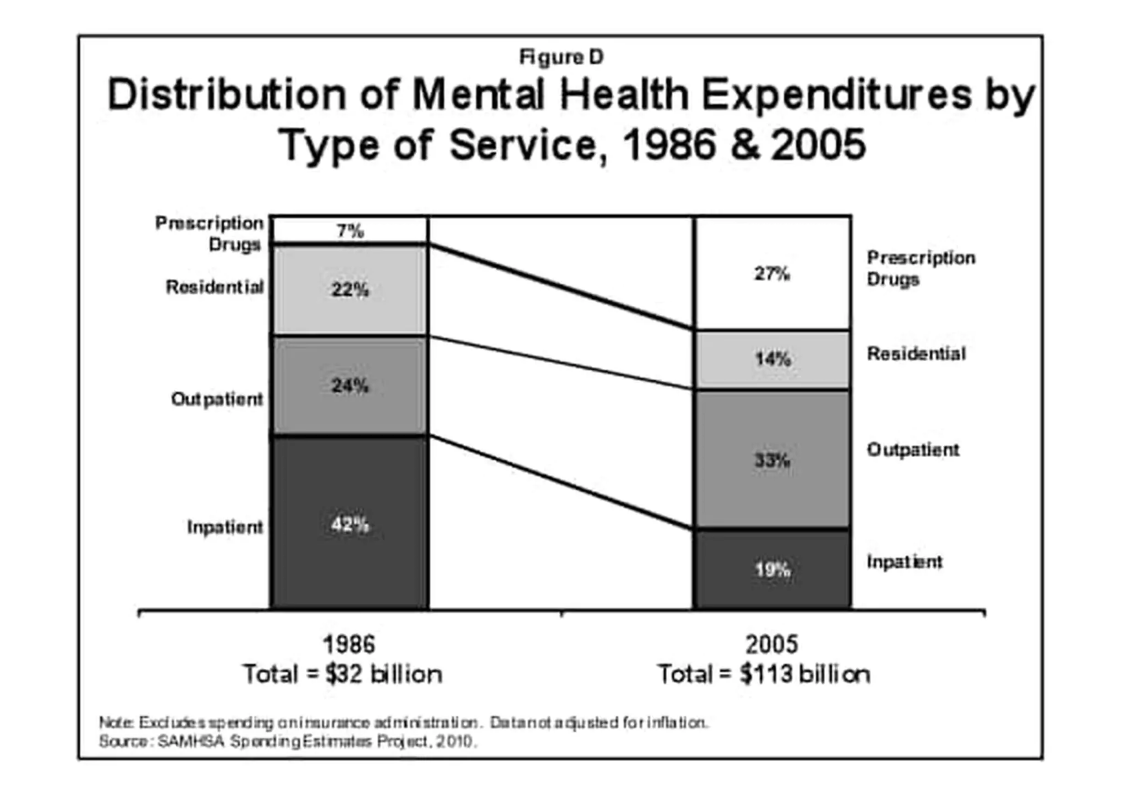Deinstitutionalization: The Effect It Has On Our Mental Health
As I talked about in my last post, mental illness is something that affects almost everyone in America. Despite this, there is increasingly less available for inpatient treatment for individuals with mental illnesses. In fact, there are approximately 3.9 million U.S. adults that go untreated for mental illnesses within any given year. That means there are approximately 3.9 million people suffering from a mental illness that do not receive the treatment they need to help their illness, which may be minor, debilitating, or anywhere in between.
The United States spends $113 billion on mental health treatment yearly, but the majority of that funding goes towards prescription drugs or outpatient treatment, leaving a decreasing amount of funding for inpatient treatment. In 2005, the U.S. spent 33% of funding on outpatient treatment, 27% on prescription drugs, and only 19% on inpatient treatment. The amount of funding spent on inpatient treatment has decreased substantially since the movement towards deinstitutionalization began in the 1960s.
Deinstitutionalization was the movement to take patients out of institutions on the basis that it was inhumane, medications could provide cures, and it would save money. Instead of being held in an institution where mentally ill patients could receive proper treatment while also working, they were being discharged into the community around them.
Unfortunately, those who were discharged, and are continuously being discharged, instead of treated, still need help from professionals and/or medication in order to function on a normal, day-to-day basis. Because these individuals can't receive this proper treatment, homelessness, suicide rates, and incarceration rates are increasing. When thrown into the streets, a large amount of mentally ill patients have no way of becoming financially stable or independent; therefore, they remain on the streets and become homeless. Often, many mentally ill patients have high violent tendencies. Without being kept in a closed environment where these violent acts can be contained or subdued, many end up committing violent crimes and end up in prison instead of a treatment facility.
In order for these problems to be lessened, state hospitals and facilities have to be funded more to provide more overnight beds for those in need. If those suffering from a mental illness continue to be discharged and not receive appropriate treatment, the state of the nation will continue to decrease. The more drugs and medications are prescribed, the more addiction will rise and this cannot be stopped by simply giving outpatient treatment for those who need more intensive care.


